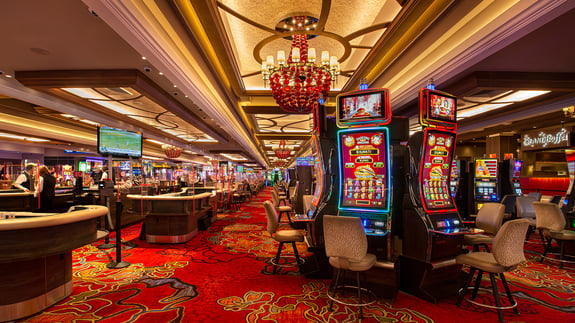
In the lively world of gambling halls, where the air pulses with enthusiasm and the clattering of tokens permeates the space, the role of a game dealer is both essential and captivating. Each day, these skilled professionals step into a world where fortune and tactics converge, leading players through the ups and downs of their chosen casino games. From card games like 21 and texas hold ’em to the revolving wheels of the roulette table, dealers facilitate the action while making sure that each game runs seamlessly and fairly.
As the sun rises on another busy day, a casino game dealer prepares to immerse themselves in this dynamic environment. Their duties extend beyond just dealing the cards or spinning a roulette wheel; they are also entertainers, customer service representatives, and guardians of the rules. Each workday brings new obstacles and interactions, making every day unique in the life of a casino dealer. This insider look will explore the day-to-day operations of a casino dealer, showcasing the expertise and insights that make this career both thrilling and fulfilling.
The Role of a Gambling Game Croupier
A casino table croupier is at the core of the gaming experience, managing the progress of the play while ensuring that players are involved and entertained. Their primary responsibility is to oversee the table, which includes dealing cards, rotating the wheel, or managing the chips, based on the game being played. Croupiers must have a thorough understanding of the rules and regulations governing each type of game, while also maintaining a welcoming and approachable demeanor to improve the gaming atmosphere.
In addition to managing the gameplay, croupiers must also keep a close watch on the players and the environment around the game. This entails monitoring for any indications of cheating, making sure that everyone is adhering to the rules, and addressing any conflicts that may arise among players. Strong communication skills are vital, as croupiers often give explanations about the rules and mechanics and offer assistance to those who may be new to gambling games.
Moreover, a dealer’s role extends beyond just the mechanical aspects of the game. They play a crucial part in creating an enjoyable experience for the players. U888 This requires establishing a rapport with patrons, being attentive to their needs, and often adding an aspect of entertainment into the play. It’s this combination of skill, alertness, and people skills that makes the position of a gambling table croupier both challenging and fulfilling in the dynamic world of gambling games.
Responsibilities and Challenges in Daily Operations
One of the main responsibilities of a dealer in a casino is to oversee the various games provided at their table, ensuring a seamless and satisfying experience for players. Dealers must be skilled at distributing cards, managing chips, and maintaining the flow of the game. This necessitates a sharp understanding of the rules of each game, from blackjack to roulette, and the ability to answer players’ questions while maintaining the game progressing. Attention to detail is crucial, as dealers must track bets, disburse winnings correctly, and monitor any cheating or discrepancies at the table.
In addition to managing the game per se, dealers face challenges such as dealing with difficult players. The casino environment can be stressful, particularly during intense games, and a dealer must remain calm and professional at all times. They need robust interpersonal skills to navigate interactions with players who may be frustrated about losses or dissatisfied with the game’s speed. Navigating these situations delicately is essential in creating a positive atmosphere on the casino floor.
Another major responsibility is upholding the integrity of the game. Dealers must be vigilant and observant, watching for any signs of collusion or cheating among players. This entails not only a solid knowledge of the games but also an awareness of player psychology. They must also adhere to the casino’s regulations and procedures, taking part in regular training sessions to stay informed on rules and protocols. Balancing these responsibilities while providing excellent customer service is what makes the role both difficult and fulfilling for a dealer in a casino.
Attributes and Qualities for Success
A successful casino game dealer must demonstrate outstanding communication skills. This includes merely the ability to effectively explain game rules and procedures to participants but also the capacity to connect with them in a approachable and professional manner. Fostering rapport with customers can enhance the gaming experience and promote repeat visits to the casino. Strong communication enables dealers to manage tables efficiently while ensuring that players feel valued.
Moreover, solid mathematical skills are essential for a dealer. Quick calculations are often required to follow bets, payouts, and game outcomes in real-time. A dealer’s ability to perform these calculations accurately and swiftly contributes to the overall efficiency of the game. This skill helps in maintaining the flow of play and in minimizing disputes or misunderstandings with players, which is crucial in a rapid casino environment.
Lastly, an ideal casino game dealer should exhibit integrity and professionalism at all times. Trust is a crucial component of the gaming experience, and players must feel assured that the games are conducted fairly and clearly. A dealer’s devotion to upholding high ethical standards fosters a positive atmosphere at the table and enhances the casino’s reputation. Being reliable in behavior ensures that dealers leave a enduring impression on guests, which can lead to a faithful customer base.
